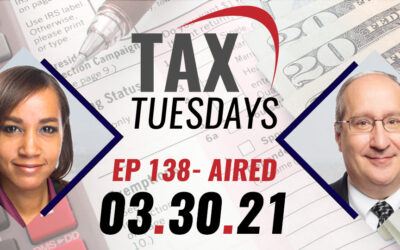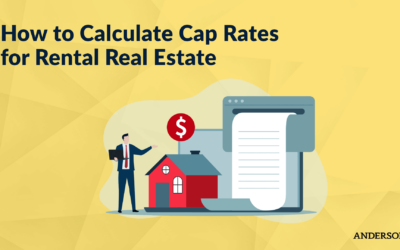What Is Self Employment Tax? How to Calculate Self Employment Tax
In this episode of Toni Talks, enrolled agent (EA) Toni Covey is joined by special guests Sergey Garayants, Esq. and Gary McHenry, CPA, to discuss the self-employment tax: what it is, who pays it, and how it can be mitigated using business entities.
Updated November 10, 2020
The self-employment tax, sometimes abbreviated as the “SE tax,” is a hot-button issue for many. Today, we’ll explore who pays the self-employment tax, what the tax is, and strategies to mitigate its effect.
Who Pays Self-Employment Tax?
Generally, self-employment tax is a special type of tax paid by sole proprietors. Sole proprietors are individuals who do business in their own name, without incorporated entities — even if they use a DBA. Additionally, those who use disregarded LLCs (whether single-member or multi-member) are subject to SE tax. Partnerships can also be subject to self-employment tax. Moreover, some business activities are specifically subject to self-employment tax, such as dealers of certain commodities or trades.
One note on DBAs here: DBAs do not provide any asset protection. DBA stands for “doing business as,” and this is most commonly referred to as a “trade name.” Some states call it a “fictitious firm name.” Whatever the case, a DBA is a special name that you use to do business, either as an individual principal or an entity. Even though DBAs are filed with the Secretary of State in many cases, a DBA is not an entity and does not provide asset protection.
What Type of Income Is Subject to Self-Employment Tax?
Oftentimes, you’ll see DBAs used by single-member LLCs that are disregarded. If the activity of that LLC is active (as opposed to passive), then it’s reported on your Schedule C. This is considered earned income. The net income reported on Schedule C is then subject to self-employment tax.
Passive income is not subject to self-employment tax. Passive income (such as the rents produced by rental real estate) is reported on your Schedule A. If you invest in the stock market, that income will be reported on your Schedule D. This is also considered passive income, and it’s subject to capital gains tax rates (short- or long-term, depending on how long you held the stock) — but it is not subject to self-employment taxes.
Generally speaking, if you’re a business involved in the sale of goods or services, the chances are significantly higher — almost 100% — that you’ll be subject to self-employment tax unless you do that activity in a special entity, such as a corporation (S- or C-corp.). Corporations are not subject to self-employment tax.
What Is Self-Employment Tax?
Self-employment tax is the equivalent of your W-2 tax for Social Security and Medicare. With W-2 wages, both the employer and the employee are responsible for paying half of these taxes. This amounts to a 7.65% contribution for Medicare and Social Security from the employer, and another 7.65% contribution from the employee.
As a self-employed person earning income, either as a sole proprietor or independent contractor, you are both the employer and the employee. This means that your Medicare and Social Security taxes are doubled from 7.65% to 15.3%. These self-employment taxes are added after your ordinary income tax has been calculated.
As you can see, this can amount to a significant tax increase for higher-income earners. The highest tax bracket is currently 37%, so an additional 15.3% on top of that is sizable.
One important note worth mentioning is that self-employed individuals are allowed to take half of their self-employment taxes as a deduction against their income (the employer portion). However, this is not allowed to be written off as a direct expense of the business, lowering your net income. Instead, it’s an adjusted gross income deduction.
How to Mitigate Self-Employment Tax
If the business activity involves any kind of material participation (with the exception of rental real estate), that activity should be removed from your personal return entirely. Instead, it’s preferable to put that activity in a vehicle (a business entity) that allows you more control over how much, if any, is reported on your personal tax return. Three entities that immediately come to mind are C-corporations, S-corporations, and limited partnerships.
Limited Partnerships
Limited partnerships are unique legal entities. They are different from general partnerships, and it’s important not to confuse the two. Limited partnerships are unique because, in almost every state, limited partnerships must be registered with the Secretary of State. General partnerships, on the other hand, do not usually have to register with the state and can instead be created by contract (in some cases).
With limited partnerships, there are always two types of participants: the general and limited partners. The general partner is generally responsible for business management and administration, and with that role comes liability. On the other side, the limited partner is in many cases an investor who provides capital and does not participate in the active business management. Limited partners have limited liability, as the name implies. Limited partnerships are not subject to self-employment tax, whether the limited partner is a person or another entity.
Important to note about limited partnerships is that there is a stringent differentiation between the two partners and their roles in the partnership. General partners are actively running the business and are wholly liable for the activities of the limited partnership. Limited partners are passive and have limited liability, but be careful. If the limited partner starts actively participating in the business, they’re acting as the general partner and put their liability protections at risk.
We won’t recommend being the general partner in this situation because that puts you right back in the position of being in the active role and paying self-employment tax. Instead, it might work better to use a C-corporation to act as your general partner and participate in a limited partnership only as the limited partner so that you are not responsible for SE tax.
C- and S-Corporations
As previously discussed, companies or individuals who are involved in the sale of goods or services will almost always be subject to self-employment taxes unless they use the proper entity. Depending on what you do, a corporation (either C- or S-) may be the right option here. Alternatively, you could use an LLC taxed as either a C- or S-corporation.
If you are involved in that business activity through a corporation, what we’ll often see with clients is that they’re involved as shareholders of that corporation. Shareholders are entitled to dividends, but they’re also eligible to earn W-2 salaries. Some of the expenses related to paying that salary are actually deductible to the corporation. Furthermore, C-corporations currently pay a flat 21% tax.
Moreover, when you use a C-corporation, you open yourself up to other ancillary benefits, such as 280A meetings and medical reimbursement plans.
When it comes to the self-employment tax, the important point here is to remove the activity from your personal tax return. S-corporations differ from C-corporations in that S-corps require you to take a reasonable salary, and this salary helps you remove the activity from your personal tax return. With this salary, you’re only responsible for ordinary income taxes at your rate, not self-employment tax.
The Takeaway
There are a few different options when it comes to mitigating the self-employment tax with the right entity for your business activity. As with any entity structuring, business planning, or tax planning, working with an experienced and qualified professional is the key to really winning with any of these strategies. It’s all about individual, customized solutions that are tailored to your current and future business activities and goals.
If you’d like to discuss the right entity structure for you with an experienced Senior Advisor, schedule your complimentary Strategy Session today. On the call, you and a Senior Advisor will build a customized entity structure for your specific facts and circumstances. You can schedule online or by calling 888.871.8535.
Free Strategy Session with an Anderson Tax Advisor
Tax Attorneys, CPAs & EAs who specialize in working with businesses and investors. Speak with an Anderson Professional Advisor to get your FREE Tax Plan Strategy Session. Limited-Time offer: FREE (a $750 value.)














